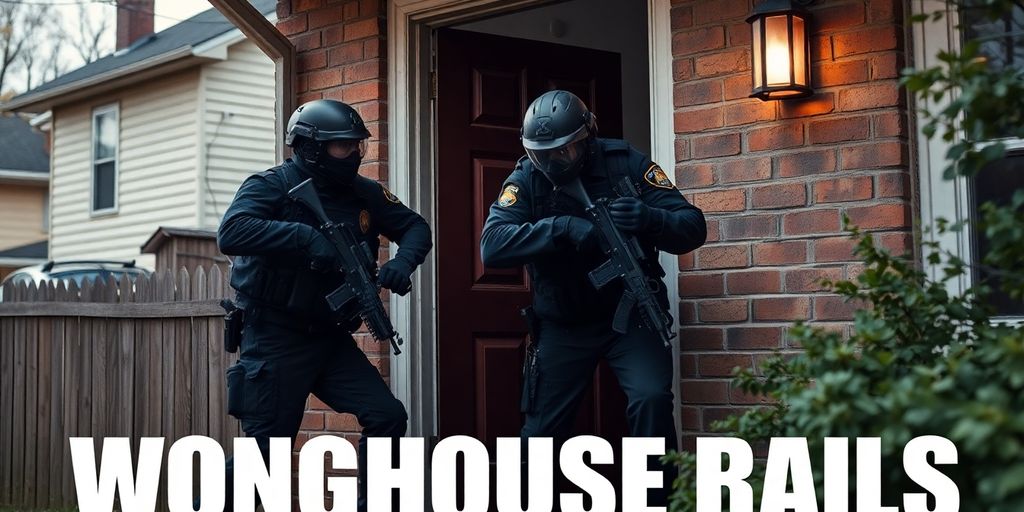Government
Supreme Court Case Martin V. USA: A Landmark Moment for Government Accountability in Wrong-House Raids

The recent Supreme Court case, Martin V. USA, has brought to light critical issues surrounding government accountability in the context of wrong-house raids. During the proceedings, justices from both sides of the political spectrum expressed skepticism towards the government’s defense, which argued that mistakes in executing search warrants are an inherent risk of law enforcement operations.
Key Takeaways
- The Supreme Court is reviewing the government’s liability in cases of wrong-house raids.
- Justices challenged the government’s argument that such errors are acceptable.
- The case highlights the psychological and financial impact on victims of these raids.
Background of the Case
The case centers on a family that experienced a traumatic wrong-house raid by federal agents. The government contends that the agents should not be held financially responsible for their mistake, claiming that the nature of their work involves certain risks, including the possibility of raiding the wrong address. This argument was met with significant pushback from the justices, who questioned the adequacy of the government’s procedures in ensuring they target the correct locations.
Government’s Defense
During the hearings, the government’s lawyer, Jeffrey Yuanlong Liu, argued:
- Risk of Exposure: Checking the house number could expose agents to potential gunfire, suggesting that the risks justify the errors.
- Operational Efficiency: The government prioritized executing multiple warrants simultaneously, which Liu claimed necessitated a more rapid approach, potentially at the cost of accuracy.
However, this rationale did not resonate well with the justices, who pointed out that basic precautions, such as verifying the correct address, should not be overlooked.
Justices’ Reactions
Justice Neil Gorsuch notably challenged the government’s stance, asking, "How about making sure you’re on the right street?" This sentiment was echoed by other justices who expressed concern over the implications of allowing the government to evade accountability for such significant errors.
Impact on Victims
The family involved in the case has argued that the trauma inflicted by the raid extends far beyond the physical damage to their property. They contend that the psychological impact and the violation of their privacy are substantial and warrant compensation. Their legal team emphasizes that the emotional distress caused by the raid cannot be quantified merely by the cost of a broken door.
Broader Implications
The outcome of Martin V. USA could set a precedent for how similar cases are handled in the future. If the court rules in favor of the family, it may lead to increased accountability for law enforcement agencies and a reevaluation of the protocols surrounding the execution of search warrants. This case underscores the need for a balance between effective law enforcement and the protection of citizens’ rights.
As the Supreme Court deliberates, the nation watches closely, recognizing that the decision could have lasting implications for government accountability and the rights of individuals affected by law enforcement actions.
Sources
- Martin V. USA tackles wrong-house raid, government accountability, Constitutional Accountability Center.
-

 Press Release7 days ago
Press Release7 days agoClinical Trials Market Set for Robust Growth, Driven by Drug Development Surge and Digital Innovation
-

 Press Release7 days ago
Press Release7 days agoPediatric Vaccines Market: Safeguarding Futures, Driving Growth
-

 Press Release7 days ago
Press Release7 days agoWaterproof Structural Adhesives Market: A Comprehensive Study Towards USD 10.3 Billion in 2035
-

 Press Release7 days ago
Press Release7 days agoDownhole Tools Market: Navigating Subsurface Frontiers with Precision
-

 Press Release7 days ago
Press Release7 days agoFaropenem Sodium Market: A Potent Weapon in the Fight Against Bacterial Infections

































